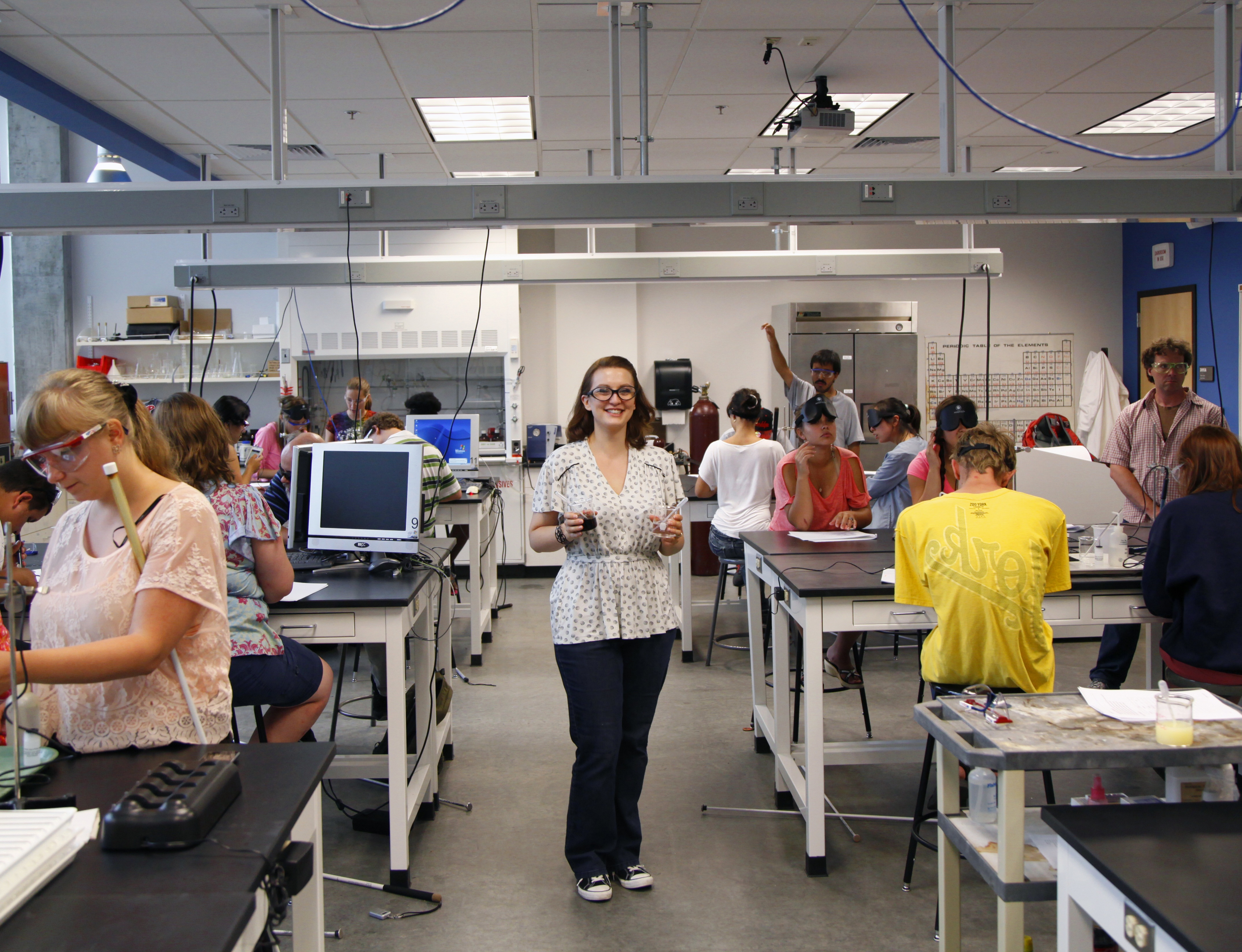
April Hill ’04, a chemistry major at Central, is now assistant professor of chemistry and director of forensic science at Metropolitan State University of Denver.
by Jenni Hodges
April (Hazen-Bosveld) Hill ’04 didn’t set out to become a teacher. A chemistry major, she planned to work in a forensic lab. After graduating from Central College, Hill earned a Ph.D. in analytical chemistry and certificate of forensic science from Iowa State University. When friends suggested she would be good at teaching, Hill remembers, “I said, ‘You couldn’t pay me enough to become a teacher.’”
Not many years after graduating from Central, however, Hill realized she liked interacting with students more than lab work. “Research is great,” Hill said, “but if I can’t see immediately how my work helps people, it’s hard for me to stay motivated.”
Hill got her first taste of helping students while serving as a teaching assistant at Central. Now she helps students at Metropolitan State University of Denver as an assistant professor of chemistry and director of forensic science.
Cathy Haustein, a professor of chemistry at Central, said Hill’s energy and curiosity make her a great teacher. Haustein and Hill worked closely on summer research projects at Central, and they have remained in touch throughout Hill’s developing career. “She just plunges into life with a lot of enthusiasm,” Haustein said. “It doesn’t surprise me she’s a professor.”
So far, Hill’s experiences range from taking a spin in zero-gravity to analyzing ancient food residue on Mayan pottery. A particular highlight is Hill’s work to develop tools that allow blind students to perform chemistry labs. “A lot of blind kids don’t get to do hands-on science because teachers are afraid it will be unsafe for them,” Hill said. “So their sighted partners do everything and narrate the process. It’s really boring for the blind student to try and understand science that way.”
According to Hill, simple adaptations of many tools can allow blind students to experience chemistry labs for themselves. For example, students can use pH indicators that speak measurements, rather than relying on color indicators. Hill uses this and similar tools to present camps and workshops for blind high school and college students with the National Federation of the Blind and Colorado Center for the Blind.

Hill teaches a blind student to use modified chemistry tools at a workshop for Colorado Center for the Blind students at Metro State. These tools enable blind students to complete chemistry labs independently.
Hill also recently helped her students by persuading the National Institute of Standards and Technology (NIST) to provide a five-year grant for Metro State to participate in its Professional Research Experience Program (PREP). This partnership will allow Metro State students to receive wages, as well as full tuition, while working as interns in the NIST lab in Boulder, Colo.
This grant, Hill said, is especially important for working adult students at Metro State. These students need opportunities to gain research experience and build careers, but they often lack the financial support that many younger students have. “I like that about our students,” Hill said. “They’re hard workers.”
Looking back, Hill said her small classes at Central—and relationships with professors like Haustein—have been essential to her career. Hill said she strives to emulate Central faculty by showing Metro State students she cares about them. “I wanted to teach at a university with small class sizes so I could get to know students personally,” Hill said.
It’s the small classes, according to Haustein, that enable Central professors to know and love their students for everything that makes them unique. “I’m glad she’s continuing that tradition,” Haustein said.

Hill leads a workshop in a lab at Metro State. Because of her work to engage blind students, together with her Metro State colleagues, the Colorado local section of the American Chemical Society recently won a ChemLuminary award for chemistry with disabilities inclusion.
Photos courtesy of April Hill


